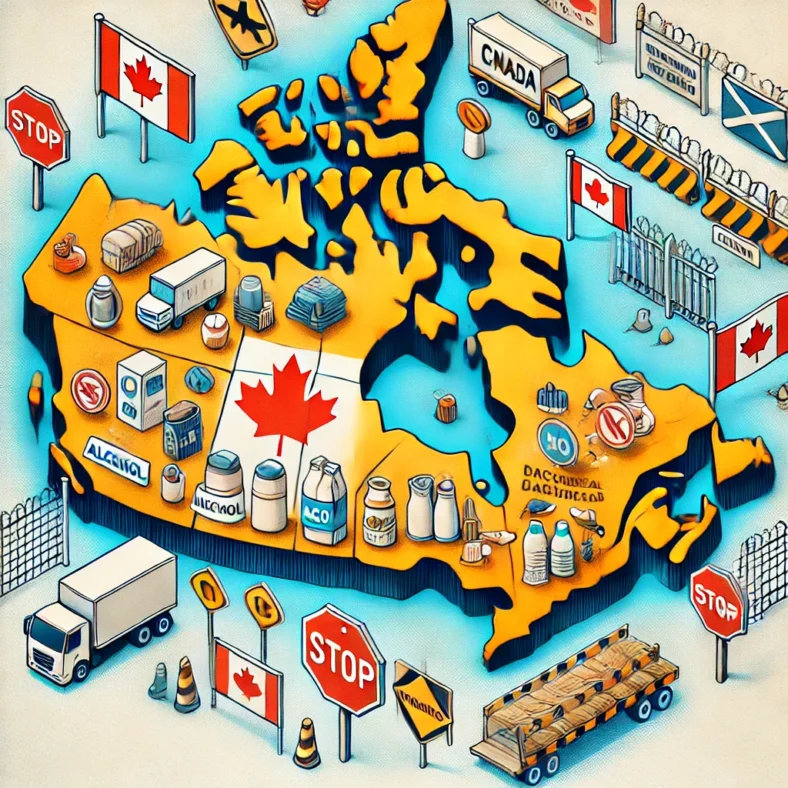Best Air Miles Credit Cards in Canada: Editorial picks
| Compare | Ratestead Rating | Annual Fee | Annual Rewards | Welcome Bonus | Learn More |
|---|
| APPLY NOW | /10 |
In this guide, we will walk you through everything you need to know about air miles credit cards in Canada. We’ll explore the features, benefits, and rewards programs offered by top credit card providers, helping you make an informed decision about which card is the best fit for your travel goals and lifestyle.
Whether you’re a business traveler looking for premium travel benefits, a budget-conscious explorer seeking to maximize your rewards, or simply someone who wants to earn miles on everyday purchases, we’ve got you covered. We’ll delve into the specific features of each card, including earning rates, welcome bonuses, annual fees, and additional perks like airport lounge access, travel insurance, and companion vouchers.
Furthermore, we’ll highlight important factors to consider when choosing an air miles credit card, such as airline partnerships, flexibility in redeeming miles, ease of earning and using rewards, and any limitations or restrictions that may apply.
By the end of this guide, you’ll have a clear understanding of the best air miles credit cards available in Canada and be equipped with the knowledge to make an informed decision based on your travel preferences and financial needs. So, buckle up and let’s dive into the exciting world of air miles credit cards in Canada!
What are air miles credit cards?
Air miles credit cards are specialized credit cards that offer rewards in the form of air miles or travel points for qualifying purchases. These cards are designed to cater to frequent travelers or individuals who aspire to earn rewards towards flights, hotel stays, car rentals, and other travel-related expenses.
With an air miles credit card, you can accumulate points or miles based on your spending. These rewards can then be redeemed for flights with specific airlines or within airline alliances, allowing you to enjoy discounted or even free travel experiences. Some cards may also offer the flexibility to redeem miles for hotel stays, vacation packages, or other travel-related perks.
Air miles credit cards typically have partnerships with specific airlines or travel loyalty programs, enabling cardholders to earn rewards directly within those programs. These partnerships may include major Canadian airlines, international carriers, or alliances that cover a wide range of airlines.
In addition to earning air miles, these credit cards often come with various benefits and features that enhance your travel experience. These may include airport lounge access, priority check-in and boarding, travel insurance coverage, concierge services, and more.
It’s important to note that air miles credit cards may come with annual fees, varying interest rates, and specific eligibility criteria. Therefore, it’s crucial to evaluate the terms and conditions, rewards program, fees, and additional perks before choosing the best air miles credit card that aligns with your travel goals and financial preferences.
Air miles credit cards can be an excellent way to earn rewards and enhance your travel experiences, but it’s essential to use them responsibly, pay off your balances in full each month, and carefully manage your credit to avoid high-interest charges and debt accumulation.
Common features of the best air miles credit cards
The best air miles credit cards often share several common features that make them stand out in the market. When comparing these cards, it’s important to consider the following key features:
Airline Partnerships: Top air miles credit cards have partnerships with major airlines or airline alliances, allowing you to earn and redeem miles with a wide range of carriers. Look for cards that offer partnerships with airlines that align with your travel preferences and destinations.
Rewards Earning Rate: The earning rate is the number of air miles or points you earn per dollar spent on the card. The best air miles credit cards typically offer competitive earning rates, allowing you to accumulate rewards quickly. Higher earning rates, especially on travel-related purchases, can maximize your rewards potential.
Welcome Bonuses: Many air miles credit cards offer generous welcome bonuses, providing a significant number of bonus miles upon meeting certain spending requirements within a specified time frame. These bonuses can give your rewards balance a substantial boost right from the start.
Annual Fees: Air miles credit cards often come with annual fees, which can range from moderate to high. Consider the value of the rewards, benefits, and perks offered by the card to determine if the annual fee is justified. Some cards may also offer fee waivers for the first year.
Additional Travel Benefits: Look for additional travel-related benefits such as airport lounge access, priority boarding, complimentary travel insurance, concierge services, and discounted or complimentary companion tickets. These perks can enhance your travel experience and provide added value to your air miles credit card.
Redemption Flexibility: The best air miles credit cards offer flexibility in redeeming your rewards. Look for cards that allow you to redeem miles for flights, hotel stays, car rentals, vacation packages, or even cash back. Flexibility gives you more options and ensures your rewards align with your travel goals.
Insurance Coverage: Travel insurance coverage is a valuable feature offered by some air miles credit cards. This can include trip cancellation/interruption insurance, baggage insurance, travel medical insurance, and rental car insurance. Review the coverage limits and terms to ensure it meets your needs.
Foreign Transaction Fees: If you plan to use your air miles credit card for international travel or online purchases in foreign currencies, consider the foreign transaction fees. Some cards waive these fees, which can save you money on transactions made outside of Canada.
Remember, the best air miles credit card for you will depend on your individual travel habits, preferences, and financial goals. Consider these common features alongside your personal needs to find the card that offers the most value and aligns with your travel aspirations.
Benefits of air miles credit cards
Air miles credit cards offer a range of benefits that can enhance your travel experiences and provide value for your spending. Here are some key benefits of air miles credit cards:
Earn Air Miles: The primary benefit of air miles credit cards is the ability to earn air miles or travel points for your purchases. Every dollar you spend on the card translates into rewards that can be redeemed for flights, hotel stays, car rentals, and other travel-related expenses. This allows you to accumulate miles over time and work towards your travel goals.
Flight Redemption Flexibility: Air miles credit cards often provide flexibility in redeeming your rewards. You can choose from a wide range of airlines and destinations within their partnership networks, giving you the freedom to book flights that suit your preferences. This flexibility allows you to maximize the value of your miles and find flights that work best for your travel plans.
Welcome Bonuses: Many air miles credit cards offer enticing welcome bonuses to new cardholders. These bonuses typically provide a significant number of bonus miles upon meeting a certain spending requirement within a specified timeframe. Welcome bonuses can give your rewards balance a substantial boost, making it easier to reach your travel goals sooner.
Travel-Related Perks: Air miles credit cards often come with additional travel-related perks and benefits. These can include airport lounge access, priority check-in and boarding, complimentary checked bags, travel insurance coverage, concierge services, and more. These perks can enhance your travel experience, provide convenience, and save you money on travel expenses.
Companion Tickets and Upgrades: Some air miles credit cards offer companion tickets or upgrades as a reward or benefit. These allow you to bring a companion on a flight at a reduced cost or enjoy upgrades to premium cabins. These perks can add value to your travel and make your trips more enjoyable.
Purchase Protection and Insurance: Many air miles credit cards provide purchase protection and insurance coverage, such as extended warranty protection, price protection, and travel insurance. These features offer peace of mind when making purchases and can save you money by covering unforeseen circumstances during your travels.
Special Discounts and Offers: Air miles credit cards often provide access to exclusive discounts, promotions, and special offers. These can include discounted hotel stays, car rental discounts, or access to unique experiences. Taking advantage of these offers can help you save money and make your travels more affordable.
Downsides of air miles credit cards
While air miles credit cards offer numerous benefits, it’s important to be aware of potential downsides. Here are some key considerations and downsides to keep in mind:
Annual Fees: Many air miles credit cards come with annual fees, which can range from moderate to high. These fees can offset the value of the rewards earned, particularly if you don’t use the card frequently or if the benefits provided don’t align with your travel habits. Make sure to evaluate whether the benefits and rewards outweigh the cost of the annual fee.
Limited Redemption Options: While air miles credit cards provide opportunities to earn rewards, the redemption options may be limited to flights, hotel stays, or travel-related expenses. If you prefer more flexibility in how you use your rewards, such as cash back or non-travel related options, an air miles credit card may not be the most suitable choice.
Blackout Dates and Restrictions: Some air miles credit cards may have blackout dates or restrictions when it comes to redeeming your miles for flights. This means that certain popular travel periods or destinations may have limited availability or require a higher number of miles. It’s important to review the redemption rules and any limitations associated with the rewards program.
Higher Interest Rates: Air miles credit cards often come with higher interest rates compared to non-rewards credit cards. If you carry a balance on your card and accrue interest charges, it can offset the value of the rewards earned. To fully benefit from an air miles credit card, it’s advisable to pay off your balance in full each month to avoid interest charges.
Complex Rewards Programs: Some air miles credit cards have complex rewards programs with tiered earning rates, multiple redemption options, and various partner airlines. This complexity can make it challenging to fully understand and optimize your rewards. It’s important to familiarize yourself with the program details and redemption process to maximize the value of your miles.
Annual Fee Waivers: While some air miles credit cards offer annual fee waivers for the first year, it’s important to consider the long-term cost of the card. After the initial year, you may be responsible for paying the annual fee, which should be factored into your decision-making process.
Credit Score Impact: Applying for multiple credit cards, including air miles credit cards, can have a temporary impact on your credit score. Each application triggers a credit inquiry, which may slightly lower your score. Additionally, maintaining a high credit utilization ratio by carrying high balances on your card can also negatively affect your credit score. It’s important to manage your credit responsibly to minimize any potential negative impacts.
It’s essential to carefully consider these downsides and evaluate whether the benefits and rewards of an air miles credit card align with your financial situation, travel preferences, and spending habits. Conduct a thorough comparison of different cards, their terms and conditions, and assess whether the overall value outweighs the potential drawbacks.
How to choose the best air miles credit card
Choosing the best air miles credit card in Canada requires careful consideration of your travel goals, spending habits, and personal preferences. Here are some key factors to help you make an informed decision:
Determine Your Travel Goals: Consider your travel aspirations and preferences. Do you primarily fly with a specific airline or prefer flexibility in choosing different airlines? Assess which airlines or alliances align with your desired destinations and travel patterns.
Earning Potential: Compare the earning rates of different air miles credit cards. Look for cards that offer higher earning rates, especially on travel-related purchases, to maximize your rewards accumulation. Consider if there are any spending categories that align with your regular expenses.
Welcome Bonuses: Evaluate the welcome bonuses offered by different cards. These can provide a significant boost to your rewards balance, so compare the spending requirements and bonus mile offers to see which aligns with your typical spending habits.
Annual Fees: Assess the annual fees associated with each air miles credit card. Consider the value of the rewards, benefits, and perks provided by the card to determine if the annual fee is justified. Remember to evaluate both the short-term and long-term costs.
Redemption Flexibility: Look for air miles credit cards that offer flexibility in redeeming your rewards. Consider if the card allows you to redeem miles with a variety of airlines, provides access to multiple destinations, and offers different redemption options beyond just flights.
Additional Travel Benefits: Review the additional travel-related perks offered by the cards, such as airport lounge access, travel insurance coverage, concierge services, and priority check-in or boarding. Assess which benefits are most valuable to you and align with your travel preferences.
Foreign Transaction Fees: If you frequently travel internationally or make purchases in foreign currencies, consider air miles credit cards that waive foreign transaction fees. This can help you save money on transactions made outside of Canada.
Cardholder Reviews and Reputation: Research the reputation and reviews of the air miles credit cards you’re considering. Look for feedback from existing cardholders regarding customer service, ease of redemption, and overall satisfaction with the rewards program.
Terms and Conditions: Read and understand the terms and conditions of each air miles credit card. Pay attention to any blackout dates, restrictions, expiration policies, and any other limitations that may affect the usability and value of your rewards.
Overall Value Proposition: Assess the overall value proposition of each air miles credit card. Consider the combination of earning potential, redemption options, additional benefits, and the associated fees to determine which card offers the most value for your specific needs and preferences.
How do air miles credit cards work?
Air miles credit cards work by offering rewards in the form of air miles or travel points for qualifying purchases. Here’s how they typically work:
Earning Air Miles: When you use an air miles credit card for eligible purchases, you earn a certain number of air miles or travel points for each dollar spent. The earning rate can vary depending on the card and the type of purchase. For example, you may earn a higher rate of miles for travel-related expenses, such as flights or hotel bookings.
Accumulating Air Miles: As you make purchases and earn air miles, they are accumulated in your rewards account associated with the credit card. The more you spend using the card, the more air miles you accumulate over time.
Rewards Program: Air miles credit cards are typically linked to a rewards program that allows you to redeem the accumulated air miles for various travel-related rewards. These rewards may include flights, hotel stays, car rentals, vacation packages, and other travel perks.
Redemption Options: Each air miles credit card will have its own redemption options and rules. Some cards may offer flexibility in redeeming miles with multiple airlines or within airline alliances, providing you with a broader range of flight options. Others may have partnerships with specific airlines, allowing you to redeem your miles directly with those carriers.
Redemption Process: To redeem your air miles, you will usually need to access your rewards account through the credit card provider’s website or dedicated rewards platform. There, you can browse available redemption options, check flight availability, and select the rewards you wish to redeem. Follow the instructions provided to complete the redemption process.
Redemption Values: The value of your air miles can vary depending on the specific card and the redemption option you choose. Some redemptions may offer higher value for your miles than others. For example, redeeming miles for flights during peak travel periods or to popular destinations may require more miles compared to off-peak or less sought-after routes.
Annual Fees and Other Costs: Keep in mind that air miles credit cards often come with annual fees. These fees contribute to the costs associated with providing the rewards program and additional benefits. Some cards may offer fee waivers for the first year or have lower fees for supplementary cards.
Responsible Credit Card Usage: It’s important to use air miles credit cards responsibly to maximize the benefits and avoid potential pitfalls. This means paying off your balance in full each month to avoid interest charges and managing your credit utilization ratio. Responsible usage ensures that you can fully enjoy the rewards without incurring unnecessary debt.
Types of air miles credit cards in Canada
In Canada, there are different types of air miles credit cards available to cater to varying preferences and travel needs. Here are some common types of air miles credit cards you may come across:
Co-Branded Airline Credit Cards: These credit cards are directly affiliated with a specific airline or airline alliance. They offer rewards and benefits that are specific to that airline or group of airlines. Co-branded cards often provide perks such as priority boarding, free checked bags, and access to airport lounges associated with the airline. They may also offer bonus miles for spending with the airline or its partners.
General Travel Rewards Credit Cards: These credit cards allow you to earn air miles or travel points that can be redeemed with a variety of airlines or travel providers. They offer more flexibility in terms of redemption options, as you’re not limited to a single airline. These cards often have partnerships with multiple airlines, hotel chains, and other travel-related merchants. General travel rewards credit cards may also offer additional perks like travel insurance coverage and airport lounge access.
Bank Rewards Credit Cards: Some banks in Canada offer their own rewards programs that include air miles as one of the redemption options. These credit cards earn points that can be converted into air miles or used for other rewards. Bank rewards credit cards often provide flexibility in terms of airline choices and may offer bonus points for spending in specific categories such as travel, dining, or groceries.
Premium Travel Credit Cards: These are high-end credit cards designed for frequent travelers or individuals seeking premium travel experiences. Premium travel credit cards offer extensive travel benefits and exclusive perks. They often come with higher annual fees but provide significant rewards, such as access to luxury airport lounges, travel credits, concierge services, complimentary elite status with airlines or hotel loyalty programs, and enhanced travel insurance coverage.
No-Fee Air Miles Credit Cards: As the name suggests, these cards do not have an annual fee associated with them. No-fee air miles credit cards allow you to earn air miles without the cost of an annual fee. However, they may offer a lower earning rate or have fewer additional benefits compared to cards with annual fees.
When selecting an air miles credit card, consider your preferred airlines, redemption options, travel patterns, and spending habits. Evaluate the earning potential, annual fees, additional benefits, and redemption flexibility offered by each card to find one that aligns with your travel goals and provides the most value for your needs.
Pros and cons of air miles credit cards
Pros:
Travel Rewards: Air miles credit cards allow you to earn rewards that can be redeemed for flights, hotel stays, car rentals, and other travel-related expenses. This can significantly offset your travel costs and make your trips more affordable.
Bonus Offers: Many air miles credit cards offer attractive sign-up bonuses or welcome offers, providing a substantial number of bonus miles when you meet certain spending requirements. These bonuses can give you a head start in accumulating air miles.
Additional Travel Benefits: Air miles credit cards often come with additional travel perks and benefits. These may include airport lounge access, priority check-in or boarding, travel insurance coverage, concierge services, and discounts on travel-related purchases. These extras can enhance your travel experience and provide added value.
Redemption Flexibility: Depending on the type of air miles credit card, you may have the flexibility to redeem your miles with a range of airlines, within airline alliances, or even for non-flight travel options. This gives you more choices and allows you to customize your rewards to suit your preferences.
Complimentary Upgrades: Some air miles credit cards offer complimentary upgrades to higher travel classes or elite status within airline loyalty programs. This can provide you with enhanced travel experiences, such as upgraded seats or access to exclusive benefits.
Cons:
Annual Fees: Many air miles credit cards come with annual fees, which can range from moderate to high. These fees can offset the value of the rewards earned, particularly if you don’t use the card frequently or if the benefits provided don’t align with your travel habits. It’s important to evaluate whether the benefits and rewards outweigh the cost of the annual fee.
Blackout Dates and Restrictions: Some air miles credit cards may have blackout dates or restrictions when it comes to redeeming your miles for flights. This means that certain popular travel periods or destinations may have limited availability or require a higher number of miles. It’s important to review the redemption rules and any limitations associated with the rewards program.
Higher Interest Rates: Air miles credit cards often come with higher interest rates compared to non-rewards credit cards. If you carry a balance on your card and accrue interest charges, it can offset the value of the rewards earned. To fully benefit from an air miles credit card, it’s advisable to pay off your balance in full each month to avoid interest charges.
Complex Rewards Programs: Some air miles credit cards have complex rewards programs with tiered earning rates, multiple redemption options, and various partner airlines. This complexity can make it challenging to fully understand and optimize your rewards. It’s important to familiarize yourself with the program details and redemption process to maximize the value of your miles.
Credit Score Impact: Applying for multiple credit cards, including air miles credit cards, can have a temporary impact on your credit score. Each application triggers a credit inquiry, which may slightly lower your score. Additionally, maintaining a high credit utilization ratio by carrying high balances on your card can also negatively affect your credit score. It’s important to manage your credit responsibly to minimize any potential negative impacts.
How to compare the best air miles credit cards in Canada
When comparing the best air miles credit cards in Canada, consider the following factors to find the card that suits your travel needs and provides the most value:
Earning Potential: Assess the earning potential of each card. Look at the number of miles earned per dollar spent and any bonus categories that offer higher earning rates. Consider your spending habits and determine which card offers the best earning potential based on your typical expenses.
Sign-Up Bonuses: Take note of any sign-up bonuses or welcome offers provided by the cards. Consider the spending requirements to unlock these bonuses and assess their value in relation to your travel goals. A higher sign-up bonus can provide a significant boost to your miles balance.
Redemption Options: Evaluate the redemption options available with each card. Look for flexibility in redeeming miles with multiple airlines, alliances, or travel partners. Consider if the card allows for easy redemption and if the available options align with your preferred airlines or destinations.
Annual Fees: Compare the annual fees associated with each card. Determine if the benefits, rewards, and additional perks offered by the card justify the annual fee. Consider how often you plan to use the card and whether the rewards earned outweigh the cost of the fee.
Additional Travel Benefits: Review the extra travel benefits provided by each card. These may include airport lounge access, travel insurance coverage, concierge services, or exclusive discounts. Assess which benefits are most valuable to you and align with your travel preferences.
Foreign Transaction Fees: If you frequently travel internationally, consider cards that waive foreign transaction fees. This can help you save money on transactions made in foreign currencies and enhance the overall value of the card for international travel.
Partner Airlines and Alliances: Evaluate the partner airlines and alliances associated with each card. Determine if the card aligns with your preferred airlines or offers a wide range of options for redeeming miles. Consider the coverage and availability of flights within the card’s network.
Customer Reviews and Reputation: Research the reputation of the card issuers and read customer reviews. Look for feedback on the ease of earning and redeeming miles, customer service quality, and overall satisfaction with the rewards program. This can give you insights into the user experience and reliability of the card.
Fees and Interest Rates: Consider any additional fees associated with the card, such as balance transfer fees, cash advance fees, or late payment fees. Also, review the interest rates charged on the card if you anticipate carrying a balance. Lower fees and competitive interest rates can contribute to a better overall value proposition.
Terms and Conditions: Carefully read and understand the terms and conditions of each card. Pay attention to any blackout dates, restrictions, expiration policies, and other limitations that may impact the usability and value of your miles. Ensure that the card’s terms align with your travel plans and preferences.
By comparing these factors, you can find the air miles credit card that best suits your travel goals, spending habits, and financial needs. Consider your personal priorities and evaluate the overall value proposition of each card to make an informed decision.
How many air miles credit cards can I get?
The number of air miles credit cards you can have depends on various factors, including the credit card issuers’ policies, your creditworthiness, and your ability to manage multiple credit cards responsibly. Here are some factors to consider:
Creditworthiness: To be approved for multiple credit cards, including air miles credit cards, you generally need a good credit score. Credit card issuers assess your creditworthiness based on factors such as your credit history, income, and debt-to-income ratio. If you have a strong credit profile, you may have a higher likelihood of being approved for multiple cards.
Credit Card Issuers’ Policies: Different credit card issuers may have varying policies on how many of their cards you can have. Some issuers may limit the number of cards you can have with them, while others may allow you to hold multiple cards from their portfolio. Review the specific policies of each issuer to determine if they allow multiple card ownership.
Personal Financial Management: Managing multiple credit cards requires responsible financial management. It’s important to stay organized, keep track of payment due dates, and avoid carrying high balances or accumulating unnecessary debt. Responsible credit card usage involves paying off your balances in full each month and avoiding late payments or excessive credit utilization.
Credit Score Impact: Opening multiple credit card accounts within a short period can result in multiple hard inquiries on your credit report, which may temporarily lower your credit score. Additionally, having multiple open credit accounts can impact your credit utilization ratio, which is the amount of credit you’re using compared to your total available credit. If you have too much available credit or are carrying high balances on multiple cards, it may negatively impact your credit score.
Before applying for multiple air miles credit cards, it’s important to carefully consider your financial situation, creditworthiness, and ability to manage multiple accounts responsibly. Opening multiple cards can provide opportunities to earn more rewards and maximize your benefits, but it also comes with the responsibility of effectively managing your credit and avoiding potential pitfalls.
What are common fees associated with air miles credit cards in Canada?
Air miles credit cards in Canada may come with various fees, and it’s important to be aware of them when considering these cards. Here are some common fees associated with air miles credit cards:
Annual Fee: Many air miles credit cards charge an annual fee, which can range from a few dollars to a few hundred dollars. The annual fee is typically charged on a yearly basis and covers the cost of maintaining the rewards program, providing additional benefits, and administering the card. Some premium air miles cards with extensive benefits may have higher annual fees, while entry-level or no-fee cards may have lower or no annual fees.
Foreign Transaction Fee: If you use your air miles credit card for purchases made in a foreign currency or outside of Canada, you may incur a foreign transaction fee. This fee is usually a percentage (typically around 2-3%) of the transaction amount and covers the costs associated with converting currencies. If you frequently travel internationally or make purchases in foreign currencies, look for air miles cards that either have no foreign transaction fees or offer reduced fees for these transactions.
Balance Transfer Fee: If you choose to transfer balances from other credit cards onto your air miles credit card, you may be subject to a balance transfer fee. This fee is typically a percentage of the amount being transferred and is charged by the card issuer for facilitating the balance transfer. It’s important to review the terms and conditions of the card to understand the specific balance transfer fees, if any, associated with the air miles credit card.
Late Payment Fee: If you fail to make the minimum payment on your air miles credit card by the due date, you may be charged a late payment fee. This fee is typically a fixed amount and serves as a penalty for not meeting your payment obligations on time. Late payment fees can vary among credit card issuers, so it’s important to understand the fee structure of the specific card you’re considering.
Cash Advance Fee: If you use your air miles credit card to withdraw cash from an ATM or obtain cash equivalents (such as using your card for gambling or purchasing traveler’s checks), you may incur a cash advance fee. This fee is typically charged as a percentage of the cash advance amount and may have a separate, higher interest rate associated with it.
Overlimit Fee: If you exceed your credit limit on your air miles credit card, you may be charged an overlimit fee. This fee is typically charged when you go over the pre-approved credit limit assigned to your card. However, it’s important to note that many credit card issuers have moved away from charging overlimit fees in recent years.
It’s essential to review the terms and conditions of any air miles credit card you’re considering to understand the specific fees associated with that card. Be mindful of the potential costs and weigh them against the benefits and rewards offered by the card to ensure you’re making an informed decision.
Glossary for air miles credit cards
Here is a glossary of commonly used terms:
Air Miles: Air miles are loyalty points earned by cardholders when they make purchases using their air miles credit card. These miles can be redeemed for various travel-related rewards such as flights, hotel stays, car rentals, and more.
Reward Rate: The reward rate refers to the number of air miles earned for every dollar spent on eligible purchases with the credit card. It is usually represented as a percentage or a specific number of miles per dollar.
Sign-Up Bonus: A sign-up bonus is a promotional offer provided by the credit card issuer to new cardholders. It typically rewards a significant number of bonus miles after meeting certain spending requirements within a specified time period.
Annual Fee: The annual fee is a yearly charge imposed by the credit card issuer for the cardholder’s membership and access to the benefits and rewards program. The amount of the fee can vary depending on the type of air miles credit card and the associated perks and benefits.
Foreign Transaction Fee: A foreign transaction fee is a charge applied to purchases made in a foreign currency or outside of Canada. This fee is typically a percentage of the transaction amount and covers the costs of currency conversion.
Redemption Options: Redemption options refer to the ways in which cardholders can utilize their accumulated air miles. These options may include redeeming miles for flights, hotel stays, car rentals, merchandise, gift cards, or even cash back.
Blackout Dates: Blackout dates are specific dates or periods during which airline reward seats or other travel rewards may not be available for redemption. It’s important to check the terms and conditions of the rewards program to be aware of any blackout dates that may limit your redemption options.
Rewards Program: The rewards program is the structure and rules governing how air miles are earned, redeemed, and used. Each credit card has its own rewards program, which may include partnerships with specific airlines, alliances, or other travel providers.
Companion Ticket: Some air miles credit cards offer companion tickets as a benefit. A companion ticket allows the cardholder to bring a companion along on a flight at a reduced or free rate when booking a qualifying ticket.
Lounge Access: Lounge access is a perk that allows cardholders to access airport lounges before their flight. These lounges often provide amenities such as comfortable seating, complimentary food and beverages, Wi-Fi access, and other services to enhance the travel experience.
Travel Insurance: Many air miles credit cards offer various types of travel insurance coverage as a benefit. This can include trip cancellation/interruption insurance, emergency medical coverage, rental car insurance, and lost baggage coverage. The extent and specifics of the coverage may vary among credit cards.
How to get the most out of air miles credit cards
To get the most out of your air miles credit card in Canada and maximize the benefits and rewards, consider the following tips:
Understand the Rewards Program: Familiarize yourself with the details of the air miles rewards program associated with your credit card. Learn how miles are earned, what redemption options are available, and any restrictions or blackout dates that may apply. This knowledge will help you make strategic decisions and maximize your earning potential.
Use the Card for Everyday Purchases: Use your air miles credit card for all eligible purchases to accumulate miles faster. By using your card for everyday expenses like groceries, gas, bills, and other regular spending, you can earn miles on those transactions and increase your rewards balance over time.
Take Advantage of Sign-Up Bonuses: When you first apply for an air miles credit card, be sure to take advantage of any sign-up bonuses or welcome offers. These bonuses often require meeting a minimum spending requirement within a specified timeframe. By strategically planning your purchases during this period, you can earn a significant number of bonus miles.
Pay Off Your Balance in Full: To avoid incurring interest charges, it’s important to pay off your credit card balance in full and on time each month. By doing so, you can fully benefit from the rewards earned without the burden of interest fees. Set up automatic payments or reminders to ensure you never miss a payment.
Optimize Bonus Categories: Some air miles credit cards offer bonus categories that provide higher earning rates on specific types of purchases. Take advantage of these categories by aligning your spending with them. For example, if your card offers extra miles for dining or travel expenses, use it for those purchases to earn more rewards.
Monitor Promotions and Offers: Stay updated on promotions and special offers provided by the credit card issuer or partner airlines. These may include limited-time bonus mile offers, discounted flight redemptions, or exclusive benefits. By keeping an eye on these opportunities, you can maximize the value of your air miles and take advantage of extra rewards.
Consider Partner Airlines and Alliances: Explore the partner airlines and alliances associated with your air miles credit card. This can expand your options for redeeming miles and increase your travel flexibility. Look for opportunities to utilize your miles with different airlines within the network to find the best value for your specific travel plans.
Take Advantage of Additional Travel Benefits: Many air miles credit cards offer additional travel benefits such as airport lounge access, travel insurance coverage, priority boarding, or hotel perks. Be sure to understand and utilize these benefits to enhance your travel experience and extract additional value from your card.
Review and Optimize Your Redemption Strategy: When it comes time to redeem your air miles, carefully assess your options and choose the redemption method that offers the most value for your needs. Compare flight prices, consider upgrade options, and evaluate the cash value of miles to make an informed decision. Flexibility and planning can help you get the most out of your redemptions.
Regularly Review and Assess Your Card: Periodically review the benefits, fees, and rewards structure of your air miles credit card. Credit card offers and your personal travel needs may change over time, so it’s important to ensure that your card continues to align with your goals and preferences. Consider upgrading or switching to a different card if it offers better rewards or benefits.
By following these strategies, you can optimize your air miles credit card usage and maximize the value of the rewards and benefits it offers. Remember to always manage your credit responsibly and stay within your budget to make the most of your credit card experience.
What’s the difference between air miles credit cards and regular credit cards in Canada?
The main difference between air miles credit cards and regular credit cards in Canada lies in their primary reward structure and focus. Here are some key distinctions:
- Reward Structure: Air miles credit cards are designed to earn rewards in the form of air miles or points that can be redeemed for travel-related benefits such as flights, hotel stays, car rentals, and more. These cards typically offer a higher earning rate on travel-related purchases and may provide additional perks like airport lounge access or travel insurance coverage.
Regular credit cards, on the other hand, offer a variety of rewards programs that may include cash back, points, or other types of rewards. These rewards can often be redeemed for a broader range of options such as merchandise, gift cards, statement credits, or even charitable donations. The earning rates on regular credit cards may be more evenly distributed across different spending categories.
- Target Audience: Air miles credit cards are typically aimed at individuals who frequently travel or have a desire to accumulate air miles for future travel rewards. These cards are beneficial for individuals who want to earn miles on their everyday purchases and redeem them for flights or other travel-related expenses.
Regular credit cards, on the other hand, cater to a broader audience and may be suitable for individuals who prefer more flexibility in how they earn and redeem rewards. These cards can be used to earn rewards on various spending categories and offer a wider range of redemption options beyond travel.
- Benefits and Perks: Air miles credit cards often come with specific travel-related benefits and perks. These may include airport lounge access, priority boarding, travel insurance coverage, concierge services, or discounts on hotel bookings. These benefits are tailored to enhance the travel experience and provide added value for cardholders.
Regular credit cards may offer a different set of benefits and perks that are not necessarily travel-focused. These can include cash back on purchases, extended warranty protection, purchase protection, or access to exclusive events or discounts with partner merchants.
- Annual Fees: Air miles credit cards, especially those with premium benefits and higher earning rates, may have annual fees associated with them. These fees help cover the costs of maintaining the rewards program and providing additional perks. However, there are also air miles credit cards available with no annual fees or lower fees, catering to individuals who want to earn miles without the added expense.
Regular credit cards also come in a range of annual fee options, including no-fee or low-fee cards, as well as cards with higher annual fees that offer enhanced rewards or benefits.
It’s important to note that some credit cards in Canada may combine both air miles rewards and other types of rewards, providing a more versatile earning and redemption structure. These hybrid cards allow cardholders to earn air miles while also offering cash back or points on other spending categories.
Ultimately, the choice between an air miles credit card and a regular credit card depends on your spending habits, travel preferences, and the type of rewards and benefits that align with your needs.
What are the requirements to get an air miles credit card in Canada?
The specific requirements to get air miles credit cards in Canada may vary depending on the credit card issuer and the specific card you are applying for. However, there are some common requirements that you can expect when applying for an air miles credit card:
Age: You must be at least 18 years old to apply for a credit card in Canada. Some credit card issuers may have a minimum age requirement of 19.
Canadian Residency: Most air miles credit cards in Canada require applicants to be Canadian residents. You will typically need to provide proof of your Canadian residency, such as a Canadian address and a valid Canadian government-issued identification document.
Credit History: Credit card issuers typically consider your credit history and credit score when reviewing your application. For air miles credit cards, a good to excellent credit score is generally preferred. However, some credit cards may be available to individuals with fair or limited credit history.
Income: You will need to provide information about your annual income on the credit card application. Credit card issuers assess your income to ensure that you have the means to make the required payments. The minimum income requirement may vary depending on the card you are applying for.
Debt-to-Income Ratio: Credit card issuers may also consider your debt-to-income ratio, which compares your monthly debt obligations to your income. A lower debt-to-income ratio is generally more favorable.
Employment Status: You may be required to provide details about your employment status, including your occupation and employer. Stable employment and a consistent source of income can positively impact your credit card application.
Identification and Documentation: When applying for an air miles credit card, you will typically need to provide identification documents, such as a valid Canadian driver’s license or passport. You may also be asked to submit additional documentation to verify your income, such as recent pay stubs or tax returns.
How to apply for an air miles credit card in Canada
To apply for an air miles credit card in Canada, you can follow these general steps:
Research and Compare: Start by researching different air miles credit cards available in Canada. Compare their features, benefits, earning rates, annual fees, and any special promotions or sign-up bonuses. Look for a card that aligns with your travel preferences and spending habits.
Check Eligibility: Review the eligibility requirements for the air miles credit card you’re interested in. Consider factors such as minimum income, credit score, and Canadian residency. Make sure you meet the basic criteria before proceeding with the application.
Gather Required Information: Collect the necessary information and documents to complete the application. This may include your personal details (name, address, date of birth), contact information, employment details (employer name, occupation, income), and identification documents (Canadian driver’s license, passport, etc.).
Fill out the Application: Visit the website of the credit card issuer or the specific air miles credit card you wish to apply for. Look for the “Apply Now” or “Apply Online” button. Follow the instructions and provide accurate information in the application form. Double-check all the details before submitting.
Review Terms and Conditions: Read and understand the terms and conditions of the credit card before submitting your application. Pay attention to important details such as interest rates, annual fees, rewards program rules, and any applicable fees or penalties. Make sure you are comfortable with the terms outlined.
Consent to Credit Check: By applying for a credit card, you typically give the credit card issuer permission to perform a credit check to assess your creditworthiness. Be aware that a credit inquiry will be recorded on your credit report.
Submit the Application: Once you have completed the application form and reviewed the terms and conditions, submit your application online. You may receive an instant decision or be notified of further steps required.
Provide Additional Information if Requested: In some cases, the credit card issuer may request additional information or documentation to process your application. Be prepared to provide any requested documents promptly to avoid delays.
Wait for Approval: After submitting your application, wait for a response from the credit card issuer. The processing time can vary, but you will typically receive a decision within a few business days. The issuer may contact you by email, mail, or phone.
Activate Your Card: If your application is approved, you will receive the air miles credit card in the mail. Follow the instructions provided to activate the card before you can start using it. Typically, you will need to call a phone number or activate it online.
Remember to manage your credit responsibly and use your air miles credit card wisely. Pay your bills on time, keep your credit utilization low, and make the most of the rewards and benefits offered by your card.
How to best use air miles credit cards in Canada
To make the most of your air miles credit card in Canada, consider the following tips:
Understand the Rewards Program: Familiarize yourself with the specific air miles rewards program associated with your credit card. Understand how the miles are earned, their value, and the redemption options available. Take note of any limitations or expiration policies.
Maximize Earning Potential: Use your air miles credit card for all eligible purchases to maximize your earning potential. Many cards offer bonus miles for specific spending categories like travel, groceries, or gas. Take advantage of these bonus categories whenever possible.
Pay Your Balance in Full: To avoid interest charges and maximize the value of your rewards, aim to pay your credit card balance in full and on time each month. Carrying a balance can outweigh the benefits of the rewards, as the interest charges can offset the value of the earned miles.
Look for Sign-Up Bonuses: Air miles credit cards often offer sign-up bonuses, where you can earn a substantial number of bonus miles by meeting certain spending requirements within a specified time frame. Take advantage of these bonuses to quickly accumulate miles.
Plan for Big Purchases: If you have significant planned expenses, such as a vacation or major purchase, consider timing them strategically with your air miles credit card. This way, you can earn miles on those expenses and potentially use the miles for future travel-related rewards.
Combine Miles with Travel Loyalty Programs: Some air miles credit cards in Canada allow you to transfer your earned miles to partnering airline loyalty programs. This flexibility can provide additional value and more options for redeeming your miles. Research the transfer options available and assess which partnerships align with your travel preferences.
Take Advantage of Cardholder Benefits: Air miles credit cards often come with additional benefits and perks such as airport lounge access, priority boarding, or travel insurance coverage. Make sure you understand and utilize these benefits to enhance your travel experiences and save on expenses.
Monitor Promotions and Offers: Stay updated on promotions and special offers from your air miles credit card issuer or the associated airline loyalty program. This could include discounted redemption rates, bonus miles for specific bookings, or exclusive access to events. Taking advantage of these promotions can provide extra value for your miles.
Regularly Review Your Account: Keep track of your air miles balance and review your account periodically. Be aware of any changes to the rewards program, expiration dates of your miles, or updates to cardholder benefits. This ensures you stay informed and can make the most informed decisions when redeeming your miles.
Plan and Redeem Wisely: When it comes to redeeming your air miles, plan your travel and redemption carefully. Look for opportunities to maximize the value of your miles by booking flights during off-peak times or taking advantage of promotions that offer discounted award rates. Prioritize destinations or travel experiences that align with your preferences and make the most of your earned rewards.
By following these strategies, you can effectively use your air miles credit card in Canada and enjoy the benefits of earning and redeeming miles for travel-related rewards. Remember to stay informed about any changes to the rewards program and always assess the value of your miles before making redemption decisions.
Alternatives to air miles credit cards in Canada
While air miles credit cards in Canada offer specific rewards and benefits for travel enthusiasts, there are alternative types of credit cards that may better suit different spending habits and preferences. Here are some alternatives to consider:
Cash Back Credit Cards: Cash back credit cards provide a percentage of your purchases back as cash rewards. These cards offer flexibility, as you can use the cash back for any purpose, including travel expenses. Cash back cards often have straightforward earning structures and may offer higher rates in specific spending categories like groceries, gas, or dining.
Travel Rewards Credit Cards: Travel rewards credit cards are similar to air miles cards but offer more flexibility in terms of redemption options. Instead of being limited to airline-specific rewards, these cards allow you to earn points that can be redeemed for various travel-related expenses, such as flights, hotels, car rentals, or vacation packages.
Points Rewards Credit Cards: Points rewards credit cards provide points for each dollar spent, which can be redeemed for a wide range of options, including merchandise, gift cards, experiences, or travel bookings. These cards offer versatility in how you can use your rewards and are suitable for individuals who prefer a broader range of redemption options beyond travel.
Low-Interest Credit Cards: If you’re more focused on managing your expenses and reducing interest charges, low-interest credit cards can be a good option. These cards typically have lower annual percentage rates (APRs) compared to other credit cards, which can save you money on interest if you carry a balance.
No-Fee Credit Cards: No-fee credit cards eliminate the cost of an annual fee, making them a budget-friendly choice. These cards may still offer rewards, though typically at a lower rate compared to premium cards. No-fee cards are a good option if you want to earn rewards without incurring additional costs.
Retail Rewards Credit Cards: Retail rewards credit cards are co-branded with specific retailers or stores, offering rewards, discounts, or exclusive benefits when you make purchases with them. These cards can be advantageous if you frequently shop at a particular store or prefer to earn rewards specific to that retailer.
Secured Credit Cards: For individuals who are building or repairing their credit, secured credit cards can be a viable option. Secured cards require a security deposit, which acts as collateral, and can help establish or rebuild credit history. These cards often have lower credit limits and may not offer significant rewards, but they serve as a stepping stone to improving creditworthiness.
When considering an alternative credit card, it’s essential to evaluate your spending habits, financial goals, and preferred redemption options. Compare the features, benefits, earning structures, and associated costs of different cards to find the one that aligns best with your needs. Additionally, review the terms and conditions, including interest rates, fees, and any introductory offers, to make an informed decision.
How to earn Air Miles
To earn Air Miles, you typically need to participate in an Air Miles rewards program. The specific ways to earn Air Miles can vary depending on the program and country, but here are some common methods:
Loyalty Programs: Many Air Miles programs have partnerships with various businesses, such as airlines, hotels, rental car companies, retailers, and financial institutions. You can earn Air Miles by making qualifying purchases or using services from these partners. For example, you might earn Air Miles by booking flights, staying at partner hotels, shopping at participating retailers, or using a co-branded credit card.
Credit Cards: Some financial institutions offer credit cards that are affiliated with Air Miles programs. By using these credit cards for your purchases, you can earn Air Miles based on the amount you spend. Each transaction earns you a certain number of Air Miles, and the accumulation rate may vary depending on the card and spending category.
Promotions and Bonus Offers: Air Miles programs often run promotions and bonus offers where you can earn additional Air Miles. These can include limited-time offers, special events, or targeted promotions that reward you with bonus miles for specific actions or spending thresholds.
Online Shopping Portals: Some Air Miles programs have online shopping portals where you can earn Air Miles by making purchases through their website. These portals provide access to a wide range of retailers, and you earn Air Miles based on the amount you spend.
Surveys and Market Research: Certain Air Miles programs offer opportunities to earn Air Miles by participating in surveys or market research activities. These activities may involve providing feedback, answering questionnaires, or testing products and services.
Travel and Services: When booking travel arrangements such as flights, hotels, car rentals, or vacation packages, check if there are any Air Miles promotions or partnerships available. Additionally, some service providers, such as telecommunications companies or utility providers, may offer Air Miles as part of their loyalty programs.
Remember that the specific methods and earning rates can vary between different Air Miles programs. It’s best to review the details of the specific program you’re interested in to understand how you can earn Air Miles and maximize your rewards.
How to redeem Air Miles
To redeem Air Miles, you typically need to be a member of an Air Miles rewards program. The process of redeeming Air Miles can vary depending on the program and country, but here are some common methods:
Online Redemption: Most Air Miles programs have an online platform or website where you can log in to your account and browse the available redemption options. Once you have accumulated enough Air Miles, you can select the rewards you want and follow the instructions to complete the redemption process. This can include choosing from a variety of options such as flights, hotel stays, merchandise, gift cards, experiences, and more.
Travel Rewards: If your Air Miles program offers travel rewards, you can typically redeem your Air Miles for flights, hotel accommodations, car rentals, or vacation packages. You can search for available options, select your desired travel dates and destinations, and follow the instructions to complete the booking process using your Air Miles.
Merchandise and Gift Cards: Many Air Miles programs have partnerships with retailers, allowing you to redeem your Air Miles for merchandise or gift cards. You can browse the available options online or in catalogs, choose the items or gift cards you want, and complete the redemption process by providing your shipping address or other necessary details.
Experiences and Events: Some Air Miles programs offer the opportunity to redeem Air Miles for unique experiences or event tickets. This can include activities such as spa treatments, concert tickets, sporting events, theater shows, or special events. You can typically find these options on the program’s website or through promotional offers.
Donations: Some Air Miles programs allow you to donate your Air Miles to charitable organizations or causes. This provides an opportunity to support a cause you care about by using your Air Miles for a meaningful purpose.
It’s important to note that the availability of redemption options and the number of Air Miles required can vary depending on the program and the specific reward you are interested in. Make sure to check the terms and conditions of your Air Miles program and explore the available redemption options to find the ones that best suit your preferences and needs.
How many Miles are needed for a free flight?
The number of Air Miles required for a free flight can vary depending on several factors, including the Air Miles program, the airline, the destination, the flight class (economy, business, etc.), and the availability of seats. Each Air Miles program has its own redemption chart that outlines the number of Air Miles needed for flights.
As an example, let’s consider the Air Miles program in Canada, which operates under the name “Air Miles Reward Program.” In this program, the number of Air Miles needed for a free flight can range from around 1,200 to 7,500 Air Miles or more for a one-way economy class domestic flight, depending on the distance and availability. For longer-haul international flights or business class flights, the number of Air Miles required would be higher.
It’s important to note that the number of Air Miles needed for a free flight can change over time due to various factors, including changes in the program’s terms and conditions, airline partnerships, and other factors that affect the cost of air travel. It’s always best to consult the specific Air Miles program’s website or contact their customer service to get the most accurate and up-to-date information on the number of Air Miles required for a free flight.
Is Aeroplan better than Air Miles?
The comparison between Aeroplan and Air Miles depends on your personal preferences, travel patterns, and the specific rewards and benefits each program offers. Here are some key points to consider when comparing Aeroplan and Air Miles:
Loyalty Program Structure: Aeroplan is primarily focused on travel rewards, offering a wide range of flight options with its partner airlines. Air Miles, on the other hand, has a broader selection of redemption options, including travel, merchandise, gift cards, and experiences. If you prioritize travel rewards, Aeroplan may be more suitable, whereas Air Miles offers more variety.
Airline Partnerships: Aeroplan has partnerships with Air Canada and its Star Alliance partners, which allows for greater flight redemption options globally. Air Miles has partnerships with various airlines and non-airline partners, providing flexibility in earning and redeeming rewards.
Redemption Flexibility: Air Miles typically offers more flexibility when redeeming rewards due to its broader range of options. In addition to flights, you can redeem Air Miles for merchandise, gift cards, and experiences. Aeroplan primarily focuses on flights and travel-related rewards.
Earning Opportunities: Both Aeroplan and Air Miles offer opportunities to earn rewards through various partners, such as airlines, hotels, retailers, and financial institutions. The specific earning rates and promotions may vary between the programs. It’s worth comparing the earning opportunities and rates for the partners that align with your spending habits and preferences.
Program Changes: In recent years, Aeroplan underwent significant changes in Canada, including the transition to a new program structure and partnership with Air Canada. These changes may have both positive and negative impacts, so it’s important to review the updated terms and conditions and consider how they align with your needs.
Ultimately, the “better” program depends on your individual preferences, travel goals, and how you plan to use the rewards. It’s recommended to review the specific features, redemption options, earning opportunities, and associated costs of both Aeroplan and Air Miles to determine which program suits your needs and provides the most value for you.
Do Air Miles expire?
The expiration policies for Air Miles can vary depending on the specific program and the country in which it operates. In some cases, Air Miles do have an expiration date, meaning that they will expire if they are not used within a certain period of time. However, it is important to note that expiration policies can change over time, and it’s always best to refer to the terms and conditions of the specific Air Miles program you are participating in.
Some Air Miles programs have implemented policies where the miles do not expire as long as there is some activity on the account within a certain timeframe. This activity can include earning or redeeming miles. However, if there is no activity within the specified period, the Air Miles may expire.
To get accurate and up-to-date information about the expiration policy of a particular Air Miles program, it is recommended to visit the official website of the program or contact their customer service directly.
Are air miles credit cards worth it?
Whether air miles credit cards are worth it depends on your individual circumstances, travel preferences, and spending habits. Here are some factors to consider when evaluating the value of air miles credit cards:
Travel Frequency: Air miles credit cards are most beneficial for individuals who travel frequently or plan to do so in the future. If you fly often and can accumulate a significant number of air miles, these cards can provide substantial savings on flights, upgrades, or other travel-related expenses.
Airline Loyalty: If you have a preferred airline or travel frequently with a specific airline, having an air miles credit card affiliated with that airline can enhance your loyalty program benefits. It may offer priority boarding, lounge access, or other perks that enhance your travel experience.
Redemption Options: Consider the flexibility of redeeming air miles. Some air miles credit cards offer more options for redemption, such as hotel stays, car rentals, or merchandise. If you prefer a broader range of redemption choices, make sure the rewards program associated with the card aligns with your preferences.
Earning Potential: Evaluate the earning potential of the air miles credit card based on your spending habits. Some cards offer higher earning rates in specific spending categories, such as travel, groceries, or gas. If your spending aligns with these bonus categories, you can accumulate miles faster.
Annual Fees and Costs: Air miles credit cards often come with annual fees. Consider whether the value of the rewards and benefits you can earn outweighs the cost of the annual fee. Additionally, be aware of other costs associated with the card, such as foreign transaction fees or balance transfer fees, which can impact the overall value.
Interest Rates: If you plan to carry a balance on your credit card, the interest rates associated with air miles cards should be taken into account. High interest charges can outweigh the value of the earned miles, making it less advantageous if you’re unable to pay off the balance in full each month.
Cardholder Benefits: Air miles credit cards often offer additional benefits, such as travel insurance, purchase protection, or exclusive access to events. Consider whether these benefits align with your needs and if they provide added value beyond the air miles rewards.
Credit Score Impact: Applying for a new credit card, including air miles cards, may have an impact on your credit score. If you’re actively seeking credit or concerned about your credit score, consider how applying for an air miles credit card may affect your overall credit profile.
Ultimately, the value of air miles credit cards in Canada depends on how well the card aligns with your travel goals, spending habits, and willingness to manage your credit responsibly. It’s important to compare different cards, assess the associated costs, and consider the potential rewards and benefits to determine if an air miles credit card is worth it for you.
Should I get an air miles credit card in Canada?
Whether you should get an air miles credit card in Canada depends on your personal circumstances, travel habits, and financial goals. Here are some factors to consider when deciding if an air miles credit card is right for you:
Travel Frequency: If you travel frequently, whether for business or leisure, an air miles credit card can be beneficial. It allows you to earn miles on your everyday spending and use those miles to offset the cost of flights, upgrades, or other travel-related expenses.
Airline Loyalty: If you have a preferred airline or frequently fly with a specific airline, getting an air miles credit card affiliated with that airline can enhance your loyalty program benefits. You can earn additional miles, enjoy priority boarding, access airport lounges, and potentially receive other perks that improve your overall travel experience.
Earning Potential: Consider your spending habits and whether you can maximize the earning potential of an air miles credit card. Look for cards that offer higher mile-earning rates on categories where you spend the most, such as travel, groceries, or gas. This way, you can accumulate miles faster and reap the rewards.
Redemption Options: Evaluate the redemption options available with the air miles credit card you’re considering. Some cards provide flexibility to use your miles for flights, hotel stays, car rentals, or merchandise, while others may be more limited. Ensure the redemption options align with your preferences and offer value for your accumulated miles.
Annual Fees and Costs: Air miles credit cards often come with annual fees. Consider whether the benefits, rewards, and potential savings outweigh the cost of the annual fee. Additionally, be aware of other costs associated with the card, such as foreign transaction fees or balance transfer fees, which can impact the overall value.
Interest Rates and Credit Responsibility: If you plan to carry a balance on your credit card, it’s crucial to consider the interest rates associated with the air miles card. High interest charges can negate the value of the earned miles, making it less advantageous if you’re unable to pay off the balance in full each month. Make sure you’re committed to managing your credit responsibly to avoid incurring unnecessary debt.
Cardholder Benefits: Air miles credit cards often offer additional benefits, such as travel insurance, purchase protection, or access to exclusive events. Assess whether these benefits align with your needs and if they provide added value beyond the air miles rewards.
Credit Score Considerations: Applying for a new credit card, including an air miles card, may have an impact on your credit score. If you’re actively seeking credit or concerned about your credit score, weigh the potential impact and consider if it aligns with your long-term financial goals.
The future of air miles credit cards in Canada
The future of air miles credit cards in Canada is subject to various factors and trends shaping the credit card industry as a whole. While it’s challenging to predict with certainty, here are some potential developments that could impact air miles credit cards in the future:
Evolving Travel Landscape: The travel industry has undergone significant changes due to global events like the COVID-19 pandemic. The future of air miles credit cards may be influenced by shifts in travel preferences, such as increased focus on domestic travel, flexible cancellation policies, and enhanced health and safety measures. Card issuers may adapt their offerings to cater to changing travel patterns and provide added value in response to evolving customer needs.
Enhanced Redemption Flexibility: To meet consumer demands for flexibility, air miles credit cards may offer expanded redemption options beyond flights, such as hotel stays, car rentals, experiences, or other travel-related expenses. Card issuers could partner with a wider range of travel providers to offer more diverse and customizable redemption choices.
Integration with Digital Wallets: As digital payments and mobile wallets gain popularity, air miles credit cards may become more seamlessly integrated into digital platforms. Cardholders may have the option to link their air miles credit cards to mobile wallets or payment apps, allowing for convenient and secure transactions while still earning rewards.
Personalized Rewards and Offers: Card issuers may leverage advanced data analytics and artificial intelligence to offer personalized rewards and tailored promotions to air miles credit cardholders. This could include targeted offers based on spending habits, travel preferences, or specific interests, enhancing the overall cardholder experience.
Technological Advancements: The future of air miles credit cards could see advancements in technology, such as contactless payments, biometric authentication, or enhanced security features. These innovations aim to provide cardholders with faster, more secure, and frictionless transactions.
Environmental Considerations: With increased emphasis on sustainability, air miles credit cards may introduce eco-friendly initiatives. This could involve partnerships with carbon offset programs, encouraging responsible travel choices, or offering rewards for environmentally conscious spending.
Competition and Partnerships: The air miles credit card market in Canada is highly competitive, with various card issuers vying for customers. To stay competitive, issuers may forge strategic partnerships with airlines, hotels, or other travel providers to offer exclusive benefits, unique experiences, or enhanced earning opportunities.
Regulatory Changes: Regulatory changes and consumer protection measures can impact the credit card industry, including air miles credit cards. Future regulations related to fees, transparency, rewards program terms, or data privacy could shape the way air miles credit cards are offered and managed.
FAQs about the best Air Miles credit cards in Canada
The best Air Miles credit cards in Canada can vary based on individual preferences and spending habits. However, some popular options include the American Express Air Miles Platinum Credit Card, BMO Air Miles World Elite Mastercard, and the Scotiabank Gold American Express Card. These cards typically offer accelerated earning rates on Air Miles, welcome bonuses, and additional benefits such as travel insurance and airport lounge access.
To choose the best Air Miles credit card, consider factors such as the earning rate for Air Miles, welcome bonuses, annual fees, additional benefits, and the card’s acceptance and compatibility with your preferred retailers and services. Assess your spending habits and compare the features of different cards to find the one that aligns with your needs and offers the most value.
Yes, there are no-fee Air Miles credit card options available in Canada. For example, the BMO Air Miles Mastercard and the American Express Air Miles Credit Card are no-fee options that allow you to earn Air Miles on your purchases. While these cards may have lower earning rates compared to premium cards, they can still be a good choice if you prefer a no-fee option.
Yes, many Air Miles credit cards offer welcome bonuses or promotional offers that allow you to earn bonus Air Miles. These bonuses often require meeting certain spending thresholds within a specified time period. Be sure to check the specific terms and conditions of the credit card to understand the bonus offers and eligibility criteria.
In most cases, Air Miles credit cards allow you to earn Air Miles on all eligible purchases. However, it’s important to note that certain transactions such as cash advances, balance transfers, and fees may not be eligible for earning Air Miles. Review the credit card terms and conditions to understand which purchases qualify for earning Air Miles.
Yes, Air Miles earned through an Air Miles credit card can typically be redeemed for various rewards, including flights, merchandise, gift cards, and experiences. The redemption process usually follows the same guidelines as Air Miles earned through other methods. Check the redemption options and terms of your specific Air Miles program for more details.
Conclusion on the best Air Miles Credit Cards in Canada
In conclusion, choosing the best air miles credit card in Canada requires careful consideration of your travel preferences, spending habits, and financial goals. The right air miles credit card can provide you with opportunities to earn valuable rewards, enjoy travel perks, and offset the cost of your trips. By comparing different cards based on features such as earning potential, redemption options, fees, and benefits, you can find a card that aligns with your needs and maximizes your rewards potential.
Remember to evaluate factors like annual fees, interest rates, and redemption flexibility to ensure the card’s overall value outweighs the costs. It’s also important to use the card responsibly, paying off the balance in full each month to avoid interest charges and debt accumulation.
Keep in mind that the credit card industry is dynamic, and new offers and features may emerge over time. Stay informed about the latest offerings and periodically reassess your credit card choice to ensure it continues to meet your evolving needs.
By utilizing the information and tips provided in this guide, you can make an informed decision and select the best air miles credit card in Canada that aligns with your travel aspirations and helps you make the most of your rewards. Happy travels!




















